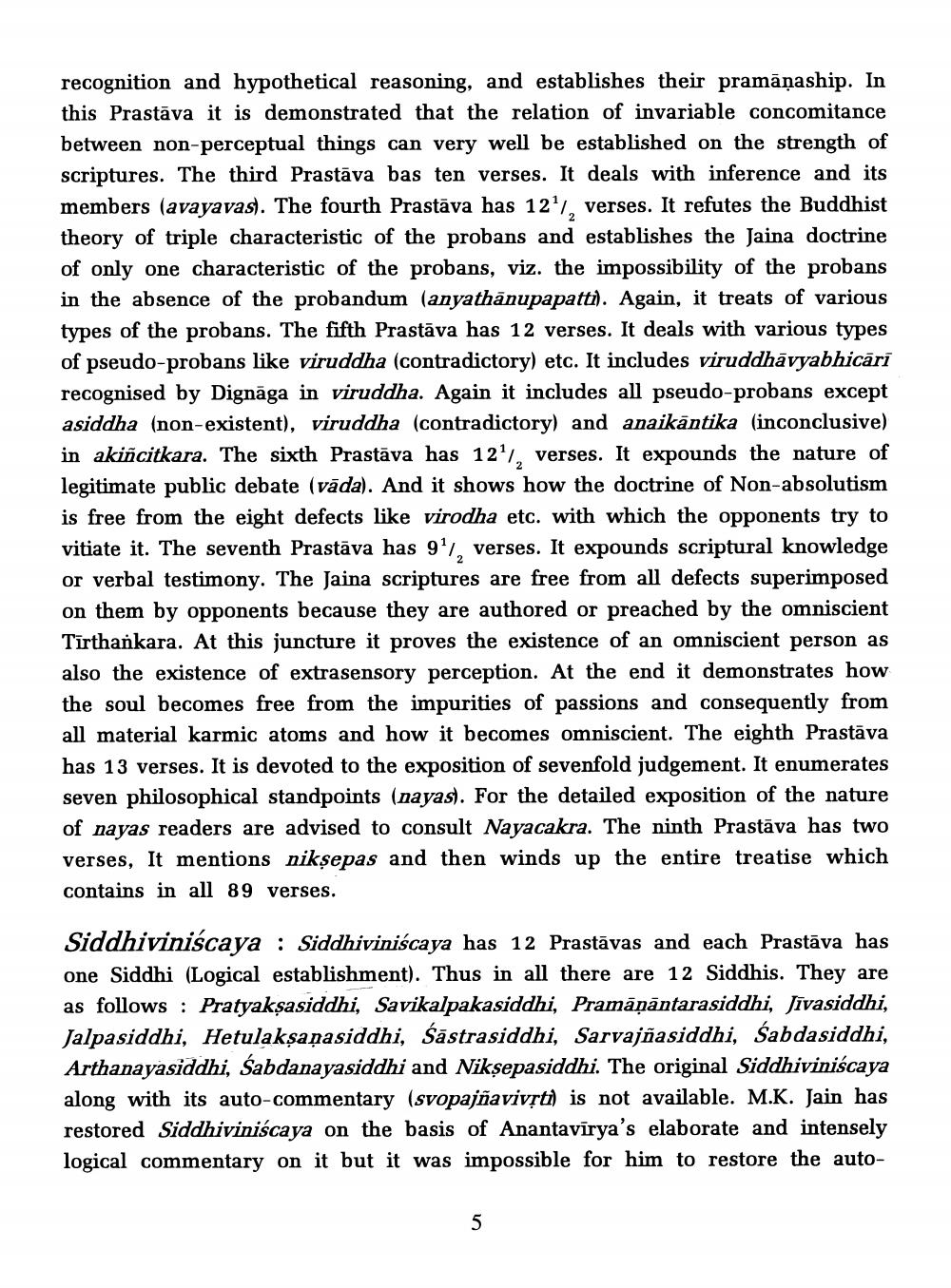________________
recognition and hypothetical reasoning, and establishes their pramāņaship. In this Prastāva it is demonstrated that the relation of invariable concomitance between non-perceptual things can very well be established on the strength of scriptures. The third Prastāva bas ten verses. It deals with inference and its members (avayavas). The fourth Prastāva has 12'), verses. It refutes the Buddhist theory of triple characteristic of the probans and establishes the Jaina doctrine of only one characteristic of the probans, viz. the impossibility of the probans in the absence of the probandum (anyathānupapatti). Again, it treats of various types of the probans. The fifth Prastāva has 12 verses. It deals with various types of pseudo-probans like viruddha (contradictory) etc. It includes viruddhāvyabhicări recognised by Dignāga in viruddha. Again it includes all pseudo-probans except asiddha (non-existent), viruddha (contradictory) and anaikāntika (inconclusive) in akiñcitkara. The sixth Prastāva has 1211, verses. It expounds the nature of legitimate public debate (vāda). And it shows how the doctrine of Non-absolutism is free from the eight defects like virodha etc. with which the opponents try to vitiate it. The seventh Prastāva has 9+1, verses. It expounds scriptural knowledge or verbal testimony. The Jaina scriptures are free from all defects superimposed on them by opponents because they are authored or preached by the omniscient Tīrthankara. At this juncture it proves the existence of an omniscient person as also the existence of extrasensory perception. At the end it demonstrates how the soul becomes free from the impurities of passions and consequently from all material karmic atoms and how it becomes omniscient. The eighth Prastāva has 13 verses. It is devoted to the exposition of sevenfold judgement. It enumerates seven philosophical standpoints (nayas). For the detailed exposition of the nature of nayas readers are advised to consult Nayacakra. The ninth Prastāva has two verses, It mentions niksepas and then winds up the entire treatise which contains in all 89 verses.
Siddhiviniscaya : Siddhiviniscaya has 12 Prastāvas and each Prastāva has one Siddhi (Logical establishment). Thus in all there are 12 Siddhis. They are as follows : Pratyaksasiddhi, Savikalpakasiddhi, Pramāṇāntarasiddhi, Jīvasiddhi, Jalpasiddhi, Hetulaksanasiddhi, Sastrasiddhi, Sarvajñasiddhi, Sabdasiddhi, Arthanayasiddhi, Sabdanayasiddhi and Niksepasiddhi. The original Siddhiviniscaya along with its auto-commentary (svopajñavivști) is not available. M.K. Jain has restored Siddhiviniscaya on the basis of Anantavīrya's elaborate and intensely logical commentary on it but it was impossible for him to restore the auto




